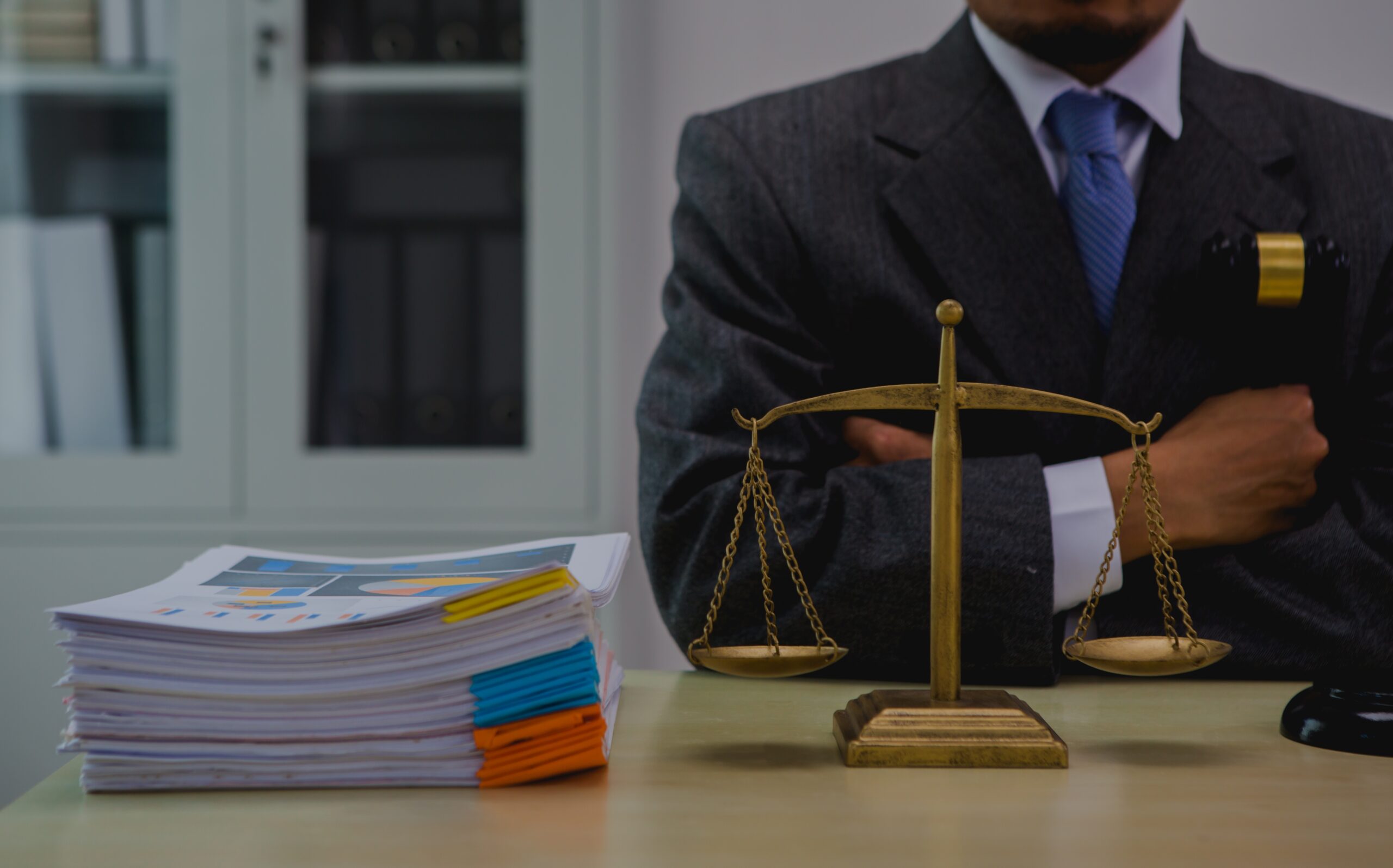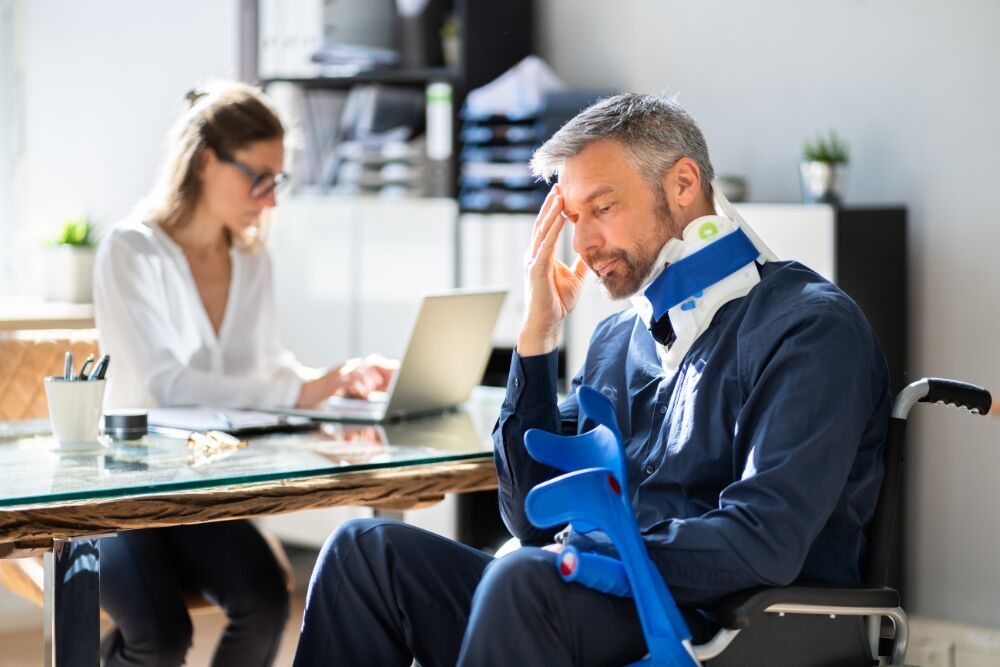Recognizing the Duty of an Attorney in Personal Injury Cases: What You Required to Know
Understanding the duty of an attorney in personal injury instances is important for those seeking justice. Lawyers play a critical role in steering with the complexities of the lawful system. They gather evidence, develop liability, and discuss with insurance companies. However, many people are unaware of the complete level of an attorney's duties. What particular strategies do they use to shield their customers' legal rights and secure reasonable payment? The solutions might stun you.
The Value of Legal Depiction in Personal Injury Situations
Several individuals may think about taking care of personal injury insurance claims on their own, the complexity of lawful processes often requires specialist support. A lawyer specializing in personal injury regulation brings important expertise to a situation, navigating elaborate lawful structures that can overwhelm the untrained individual - Workers' Compensation Lawyer. They comprehend the subtleties of responsibility, insurance coverage settlements, and laws of restrictions, making sure that clients do not miss out on crucial due dates or chances
Lawful representation can significantly enhance the possibilities of getting reasonable settlement. Attorneys are knowledgeable in examining real value of claims, considering clinical expenses, shed wages, and emotional distress. They have the negotiation abilities needed to deal efficiently with insurer, that commonly aim to decrease payments. Having an attorney can give psychological assistance and lower stress and anxiety for clients during a tough time, enabling them to focus on healing while their instance is skillfully handled.
Collecting Evidence and Structure a Strong Situation
In personal injury instances, the collection of numerous sorts of proof is crucial for establishing obligation and sustaining a customer's case. Paperwork, including medical documents, crash reports, and witness statements, plays a vital role in constructing a solid instance. Attorneys should focus on detailed evidence collecting to boost the possibility of a desirable end result for their customers.

Types of Evidence Needed
When seeking a personal injury instance, the collection of durable evidence is essential for developing responsibility and sustaining the claimant's story. Trick kinds of proof include clinical records recording injuries, which offer a valid basis for cases of physical injury. Photographic evidence catches the scene of the case, while witness statements can prove the plaintiff's account. Furthermore, police reports may provide a main point of view on the occasion. Surveillance video footage, when readily available, serves as an effective device to confirm cases. Moreover, professional testimony may clear up complex issues, especially in situations involving technical details. Jointly, these types of evidence aid produce a complete instance that boosts the probability of a desirable end result for the damaged party.
Significance of Documentation
Paperwork plays an essential duty in the success of personal injury situations, offering as the foundation whereupon claims are developed. Exact and detailed paperwork permits lawyers to collect and offer vital proof, such as clinical documents, crash records, and witness statements. This proof not just corroborates the target's insurance claims yet likewise strengthens their instance for payment. In addition, comprehensive paperwork aids in developing the extent of injuries and the influence on the victim's life, assisting in negotiations with insurance provider. By diligently arranging and handling these papers, attorneys can properly support for their customers, making certain that no considerable details are ignored. Inevitably, well-maintained documentation is crucial for achieving positive outcomes in personal injury lawsuits.
Recognizing Obligation and Oversight

In personal injury situations, attorneys play a significant role in collecting proof and constructing a strong situation around these ideas. They evaluate the scenarios bordering the incident, identify responsible parties, and articulate the breach of duty that took place. Comprehending these concepts is essential for both customers and attorneys as they navigate the intricacies of personal injury law.
Negotiating With Insurer
Negotiating with insurance firms calls for a strategic strategy to protect reasonable compensation for personal injury claims. Lawyers play a necessary duty in this process, leveraging their knowledge of insurance policy policies and negotiation methods to advocate for their customers successfully. They start by gathering extensive documentation, including medical documents, accident records, and proof of damages, to build a compelling instance.
Attorneys typically launch the negotiation by providing a need letter detailing the insurance claim's details and the wanted payment amount. This letter acts as a starting factor for discussions. Throughout negotiations, lawyers continue to be assertive yet expert, countering reduced offers with accurate evidence and highlighting the toughness of their case.
Attorneys recognize the relevance of perseverance in settlements, as insurance firms may utilize methods to delay or lessen payouts. Ultimately, their knowledge helps guarantee customers receive a negotiation that properly shows the level of their injuries and losses.
Getting ready for Test: What to Anticipate
Preparing for test in an injury instance entails a methodical strategy to recognize the trial process and the important evidence that will certainly exist. Lawyers have to describe the steps of the trial, guaranteeing their clients know what to anticipate. Additionally, they need to determine and arrange vital proof that will certainly support the case and affect the jury's decision.
Test Process Introduction
The test procedure in personal injury cases demands mindful organization and tactical preparation. Lawyers should prepare their instance carefully, guaranteeing all needed documents, witness checklists, and lawful disagreements remain in order. The discussion of opening statements sets click here to read the stage, permitting each side to outline their perspective. Following this, the complainant's instance unfolds, where witnesses and experts supply statements sustaining the case. The protection after that provides its case, often intending to challenge the complainant's debates and evidence. Throughout the test, attorneys have to stay cautious, adjusting methods as needed based upon the unraveling dynamics in the court. The trial concludes with closing debates, where both sides summarize their positions prior to the court deliberates, causing a verdict that can greatly influence the lives included.
Secret Evidence Presentation
While the trial procedure needs a complete look here understanding of legal methods, the discussion of essential proof stands as a vital element in encouraging the jury. Lawyers must meticulously collect and organize evidence, guaranteeing it is pertinent, acceptable, and engaging. This includes clinical documents, accident records, witness testimonies, and professional viewpoints. Reliable narration via these pieces of proof can considerably affect a court's understanding. Visual help such as layouts or pictures might additionally boost comprehension and retention. In addition, lawyers have to prepare and expect counterarguments to resolve them, enhancing the strength of their case. Eventually, the way evidence exists can figure out the end result of the test, making it essential for attorneys to understand this vital element of litigation.
The Duty of Expert Witnesses in Personal Injury Cases
Specialist witnesses play an essential function in personal injury cases, as their specialized understanding can considerably influence the result of litigation. These professionals supply crucial understandings into intricate matters that need competence beyond the ordinary juror's understanding. Medical professionals can illuminate the degree of injuries and the essential treatment, while accident reconstruction specialists can clarify exactly how an incident took place.
Their testament typically assists develop responsibility and the extent of damages, making it easier for juries to comprehend the nuances of an instance. In addition, professional witnesses add to the integrity of the here and now evidence, reinforcing arguments made by lawyers. In several instances, their involvement can persuade jury assumptions and ultimately influence settlement negotiations. As an outcome, choosing the right expert witness is an essential strategy for attorneys intending to strengthen their situation and advocate properly for their customers' legal rights and countervailing cases.
Shielding Your Legal Rights Throughout the Legal Process
In the search of justice within personal injury instances, shielding the civil liberties of clients remains a basic responsibility for attorneys. Throughout the legal procedure, attorneys function as supporters, guaranteeing that customers understand their rights and the effects of their decisions. They diligently navigate complicated legal systems, securing clients from possible challenges that can endanger their claims.
Attorneys likewise function to collect proof, communicate with insurer, and bargain settlements, all while maintaining their you can try this out customers notified. They ensure that customers do decline unjust deals or overlook substantial lawful deadlines. By supplying specialist support, lawyers empower clients to make educated choices, strengthening their rights.
Attorneys prepare for potential lawsuits, outfitting clients with knowledge regarding court procedures and possible results. Social Security Disability Lawyer. This extensive assistance helps clients feel confident and secure, understanding their civil liberties are supported throughout the legal journey. Eventually, an attorney's duty is important for attaining a reasonable resolution in personal injury situations
Regularly Asked Concerns
Just How Much Does Employing an Accident Lawyer Normally Price?
Hiring an accident lawyer normally costs around 33% of the settlement amount, though charges may vary based upon intricacy and jurisdiction. Some attorneys may additionally offer contingency fee plans, guaranteeing repayment only upon effective healing.
What Should I Do Quickly After an Injury Occurs?
Promptly after an injury takes place, one should look for medical attention, document the case details, collect witness information, and inform relevant authorities. These actions are crucial for guaranteeing correct care and protecting evidence for any kind of potential cases.
The length of time Does an Accident Case Normally Take?
An accident instance normally takes anywhere from a few months to several years to deal with, depending upon elements like instance intricacy, negotiation procedures, and court routines. Each case is special and varies substantially in period.
Can I Manage My Personal Injury Instance Without an Attorney?
Yes, a person can take care of an accident instance without an attorney. Steering via legal intricacies, understanding treatments, and bargaining negotiations may prove difficult, possibly impacting the outcome and payment obtained in the instance.
What Kinds Of Problems Can I Declare in a Personal Injury Situation?
In a personal injury instance, one can assert various problems, including medical expenditures, lost incomes, discomfort and suffering, psychological distress, property damages, and in some circumstances, corrective damages focused on discouraging future negligence.
Comprehending the function of an attorney in individual injury cases is necessary for those looking for justice. A lawyer specializing in personal injury legislation brings essential experience to a case, navigating elaborate lawful structures that can overwhelm the untrained person. In individual injury cases, lawyers play a significant function in collecting proof and building a strong situation around these concepts. In the quest of justice within individual injury instances, protecting the legal rights of customers remains a basic duty for attorneys. A personal injury situation commonly takes anywhere from a couple of months to several years to resolve, depending on elements like situation complexity, arrangement procedures, and court timetables.